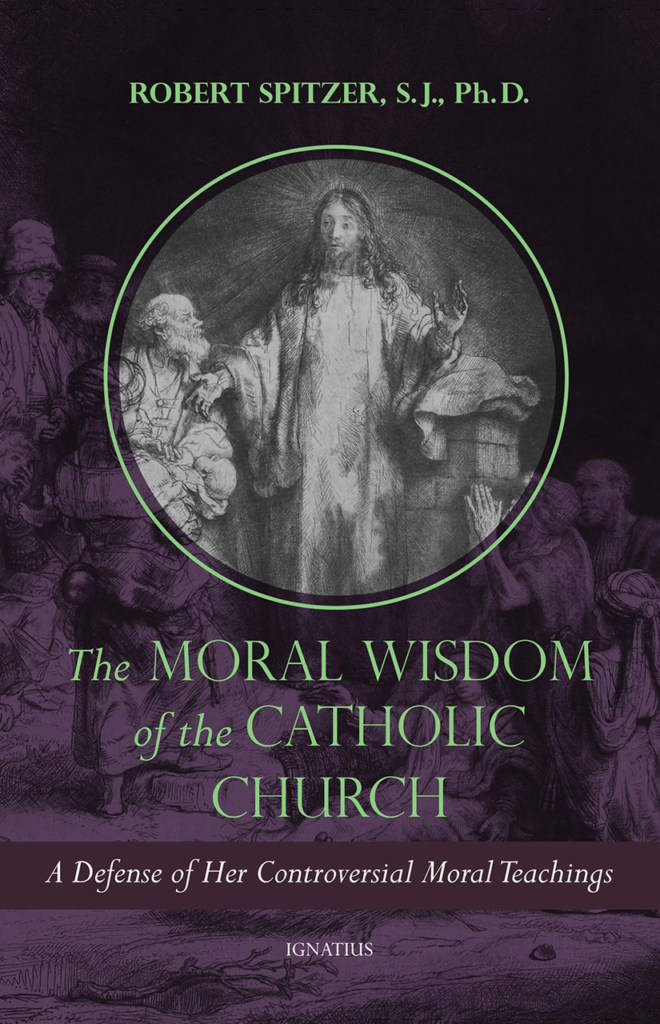Looking back at the 1990s
In the 1997 movie, Contact, the preacher Palmer Joss poses this question in a faux interview with Larry King, “Are we happier?” He asks if all the scientific and technological progress has made the world a better place. Keep in mind that the movie came out in the 1990s in the early days of the World Wide Web and years before smartphones, social media, and streaming video. Generally, we’ve made astronomical strides in affluence and comfort since the end of the 20th century, and yet people who have access to these luxuries are more miserable and confused than ever. Why?
Why we need the Church’s Wisdom
Let’s jump to Fr. Robert Spitzer’s last book of his trilogy, The Moral Widsom of the Catholic Church. I haven’t finished reading it yet, but I think he has some interesting thoughts on this topic of “progress” and happiness. He touches on progressive topics like fornication, homosexuality, abortion, and transgenderism and how they’ve become normalized across the world. As a culture, we’ve “progressed” passed what many consider the restrictive and outdated teachings of the Church. But he also cites numerous studies on how these lifestyles lead to increased anxiety, depression, drug abuse, suicides, and other forms of misery. As sin is mistaken for virtue because we no longer listen to the moral authority of the Church, more people suffer as a result.

People often mistakenly believe that the Catholic Church desires people to be unhappy with all their “rules” and forbidding freedom. The flawed logic is that by moving away from the Church’s restrictive and “outdated” teachings, one will achieve greater levels of happiness. What people find however is a life devoid of purpose and meaning because we are reduced to satisfying base desires instead of challenging ourselves for something greater.
Modern society has basically adopted the five-year-old’s “I want to only eat ice cream all day long” approach to life. While we’ve seen advancements in technology leading to greater safety, more entertainment, and access to more information, I don’t think many people would say that the world is a better place or we’re happier than we were a few generations ago. The traditional “first world” cultures are more divided, aimless, confused, and unhappy than previous generations despite all their progress.
Reaping what we sow
Many books in the Old Testament talk about God punishing the Israelites when they break his commandments. I like to think that God punished them by letting them reap what they sowed. If people aren’t going to follow laws forbidding theft, violence, adultery, murder, etc. then what type of society are you left with? One where sin runs rampant. I’m afraid God is punishing us like the Israelites by allowing us to live with the consequences of a world of reduced morality and religious observance.
We need to re-evaluate the Church’s teachings on their own merits, not how they are represented in popular media like the Atlantic or NPR. The Church has sound reasons for her teachings crafted over thousands of years based on the logic and philosophy of some of the greatest human minds led by the Holy Spirit. They don’t make for an easy life, but it’s a life with meaning, purpose, and direction. It’s a life that is in better harmony with natural law and God’s Will. When there’s harmony with God’s design, there’s happiness instead of confusion and anxiety.
Natural law and God
We look at the First Luminous Mystery — Jesus’ Baptism. Whenever we meditate on this mystery, we should ask ourselves whether we are living according to our baptismal vows which are summed up in the Creed. Are we living what we profess the Church teaches? Remember, embracing the Church means embracing God’s design manifested in all of us through natural law. If we want happiness, we need to be in harmony with God, not with our social media feeds.
Are you happier? If not, try forming a more harmonious relationship with God. Learn about his design for humanity through the Bible, Catechism, and the Mass. Maybe all you need is to listen to God a lot more and cable news a lot less.
